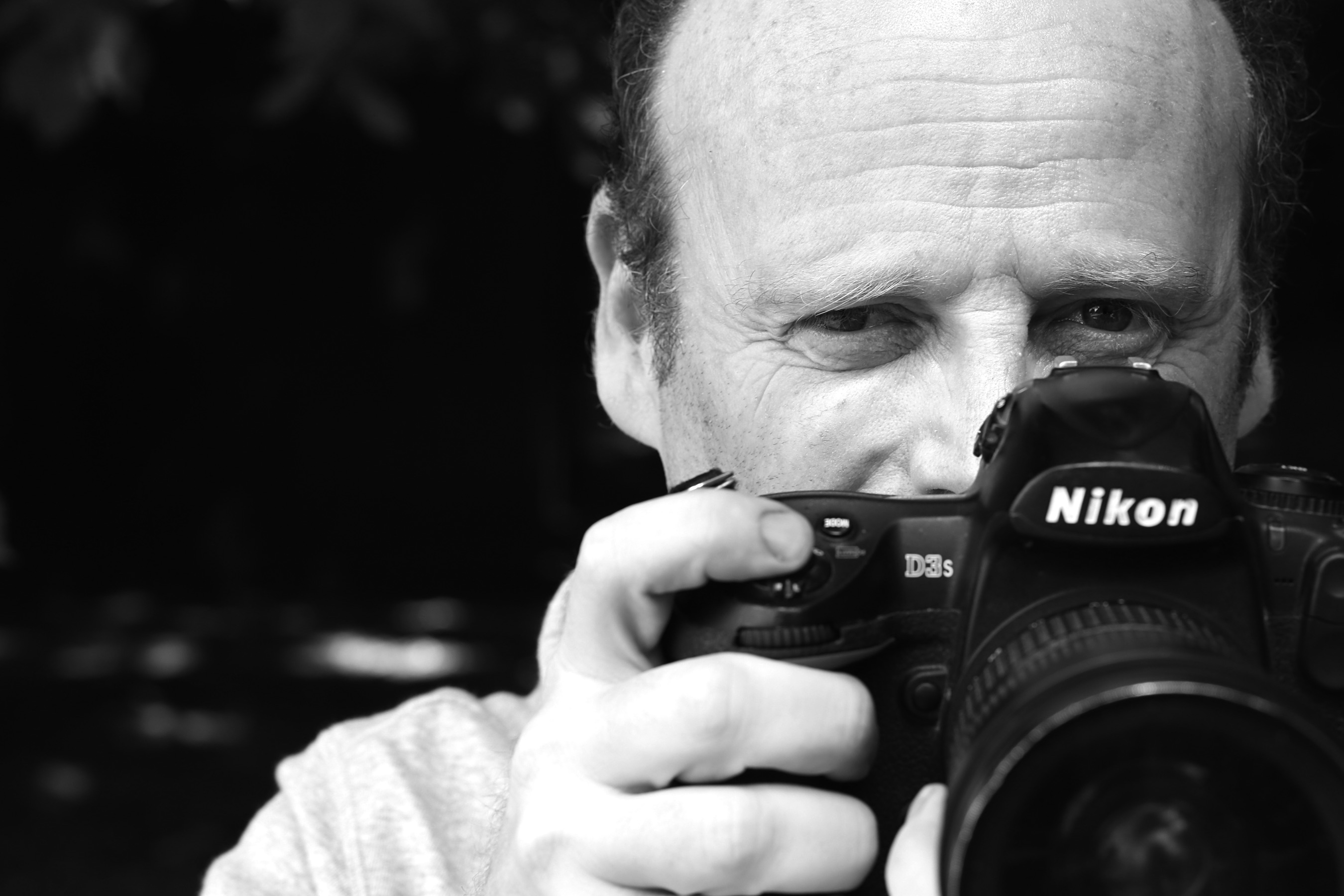 David Katz. Photo by Danielle Shitrit.
David Katz. Photo by Danielle Shitrit. Throughout his career as a photographer, David Katz has snapped portraits of political and entertainment industry titans. The list of those seen through his lens is impressive: Margaret Thatcher, Nelson Mandela, Barack Obama, Michael Jackson, Amy Winehouse, Princess Diana and Queen Elizabeth II, to name a few.
But what’s more impressive is the fact that he did it all while legally blind.
At 3 months old, Katz was diagnosed with ocular albinism, a genetic condition characterized by a lack of pigmentation in the iris. He also suffers from astigmatism, nystagmus (involuntary eye movement) and strabismus (eye misalignment that affects balance).
“Just to say the words ‘legally blind’ is really difficult for me.”– David Katz
An ardent soccer fan, Katz discovered as a child that he could watch games better by using binoculars, since the lens curbed some of the problems arising from his impairment. At age 15, he returned from a family vacation in Israel to his home in the Ilford district of London and showed his father the photos he had taken. Impressed, his father said he had real talent and promised to buy him a professional camera. Later that year, his father died and Katz secured his first photography job at his local newspaper.
While still in his teens, Katz went on to work for famed British tabloids such as The Mirror and the Daily Mail, launching a decadeslong career. He would later become the personal photographer of current Israeli Prime Minister Benjamin Netanyahu, who loved the fact that Katz always showed up early and in a suit.
Yet through it all, no one but Katz’s closest friends and family had a clue about the condition of his eyes. Even today, more than a year after Katz made the decision to “come out of the closet,” as he terms it, he still finds it hard to express himself.
“Just to say the words ‘legally blind’ is really difficult for me,” he said.
Katz always operated from the belief that if the truth were discovered, his career would be over. Competition in the industry is notoriously fierce and he figured his peers would take his blindness as a “golden egg” to topple him.
So to make up for his shortcoming, Katz studied his craft with unwavering diligence. He developed a reputation for risk-taking — always at the front lines of the action instead of hanging back with a long lens.
“I needed to create a situation where no one could ever say to me, ‘You missed that because you didn’t see it,’” he said.
He also conjured “tricks” so his peers and bosses would never find him out. When digital cameras replaced film — a concern for Katz because it necessitated the use of a computer — he memorized everything about how to use Photoshop in case he was forced to demonstrate something.
Nevertheless, Katz remains proud of his disability, claiming he’s a better photographer because of it, not in spite of it. He said he always knew he eventually would let the world know because he wanted to motivate other people to pursue their dreams, no matter how unattainable they seemed. It was a message hammered into him from an early age by his supportive mother, who insisted, “There’s no such word as ‘can’t.’ ”
“Everything was leading up to this point [of revelation],” he said. “But I needed to reach a certain level before I could have the platform that I have now.
“Otherwise, I’m just another guy with a camera.”
David Katz chronicled his journey in a documentary which can be seen here. His website is http://throughmylenses.org/























 More news and opinions than at a Shabbat dinner, right in your inbox.
More news and opinions than at a Shabbat dinner, right in your inbox.